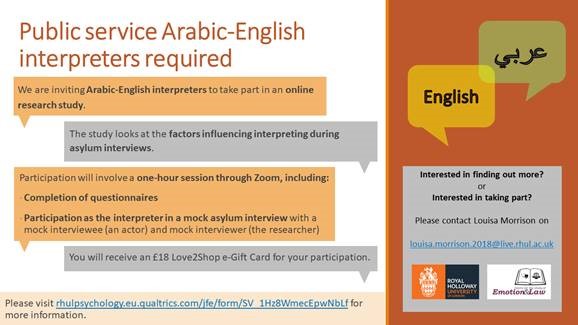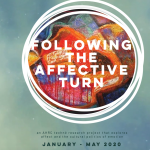Academy of Medical Sciences GCRF Network grant: Infusing Law and Policy with the Voices of Displaced Survivors of Sexual Violence in Conflict with Dr Ndagire, University of Makerere, Kampala.
Thanks to an amazing community of educators, activists and most importantly survivors of conflict related sexual violence (CRSV). This project involves listening to and learning from the lived experiences of those survivors in Uganda, home to the largest group of refugees in the world, having fled from many conflicts and countries in the region. Prof Marshall and Dr Ndagire established links between our research teams and institutions and are joint principal investigators on the grant. They have worked with the Regional Training Facility of the Great Lakes Region and a local illustrator to capture artistic representations of survivors’ voices.
Ethics and the Law of Algorithms (led by Prof Marshall (Law) and Dr Stefanie Kuenzel (Engineering), team including Xiaoyu Zhang (Engineering) , Diego Martinez Castro and José-Rodrigo Córdoba-Pachón (Management)
The project team sought to explore what intricacies and issues emerge in diverse contexts when digital algorithms – computer programmes with ‘intelligent’ technologies like Artificial Intelligence, Chatbots, Datamining – are designed or tasked to manage if not predict the digital workload and behaviour of (a) households; (b) professionals, including within the legal community where human trust and relationships, confidentiality and judgement have been critical; and (c) marginalised communities (the unemployed, ill).
Factors influencing interpreters’ memory of accounts and quality of information gathering in asylum interviews

We are currently recruiting Public service Arabic-English interpreters for an online research study.
Please visit rhulpsychology.eu.qualtrics.com/jfe/form/SV_1Hz8WmecEpwNbLf or contact Louisa Morrison on louisa.morrison.2018@live.rhul.ac.uk for more information.
Further information about the study:
 Louisa Morrison’s doctorate in clinical psychology research (supervised by Amina Memon and Zoe Given-Wilson and supported by funding from Unbound), looks at factors that influence the accuracy of interpreting during asylum hearings. Interpreting is a complex task, involving transferring the meaning of speech from one language into another. Various task-related, environmental and personal characteristics may influence how easy or difficult it is to complete the interpreting task (Chen, 2017). The asylum interview is one context in which accurate and full interpretation is particularly important (Home Office, 2019). However, interpreters have reported their concern that the potentially distressing nature of the accounts typically provided during asylum hearings may hamper the interpreter’s ability to interpret accurately (Lai, Heydon & Mulayim, 2015). This study seeks to explore this in more detail.
Louisa Morrison’s doctorate in clinical psychology research (supervised by Amina Memon and Zoe Given-Wilson and supported by funding from Unbound), looks at factors that influence the accuracy of interpreting during asylum hearings. Interpreting is a complex task, involving transferring the meaning of speech from one language into another. Various task-related, environmental and personal characteristics may influence how easy or difficult it is to complete the interpreting task (Chen, 2017). The asylum interview is one context in which accurate and full interpretation is particularly important (Home Office, 2019). However, interpreters have reported their concern that the potentially distressing nature of the accounts typically provided during asylum hearings may hamper the interpreter’s ability to interpret accurately (Lai, Heydon & Mulayim, 2015). This study seeks to explore this in more detail.
References
Chen, S. (2017). The construct of cognitive load in interpreting and its measurement. Perspectives, 25(4), 640-657. doi:10.1080/0907676X.2016.1278026
Home Office (2019). Asylum interviews. Retrieved from https://assets.publishing.service.gov.uk/government/uploads/system/uploads/attachment_data/file/807031/asylum-interviews-v7.0ext.pdf
Lai, M., Heydon, G., & Mulayim, S. (2015). Vicarious trauma among interpreters. International Journal of Interpreter Education, 7(1), 3-22.
Vicarious trauma in prison officers: risk and protective factors
CSEL Staff: Amina Memon Nick Hardwick Zoe-Given Wilson
Student: Hayley Ko
 We are currently studying the impact of vicarious trauma in different professional groups working in stressful occupational settings. Vicarious trauma can sometimes occur in individuals who experience emotional distress following their exposure to traumatic material. For example, if as part of your job you encounter situations in which the people you work with are self-harming then this can cause you stress and affect your well-being. The physical encounters that occur between prison officers and prisoners may also result in stress. This trauma can manifest itself in various ways and can impact well-being and job performance. We are about to begin a pilot study which will explore risk and protective factors for vicarious trauma in two prisons in England. Data will be collected via a confidential Qualtrics survey and results will be available in summary form on the CSEL website in due course.
We are currently studying the impact of vicarious trauma in different professional groups working in stressful occupational settings. Vicarious trauma can sometimes occur in individuals who experience emotional distress following their exposure to traumatic material. For example, if as part of your job you encounter situations in which the people you work with are self-harming then this can cause you stress and affect your well-being. The physical encounters that occur between prison officers and prisoners may also result in stress. This trauma can manifest itself in various ways and can impact well-being and job performance. We are about to begin a pilot study which will explore risk and protective factors for vicarious trauma in two prisons in England. Data will be collected via a confidential Qualtrics survey and results will be available in summary form on the CSEL website in due course.
To date there has been little research in the UK on this topic and we believe the results of our study could provide information that helps identify safeguards to protect the mental health of prison staff.
Following the Affective Turn: a techne AHRC funded research project that will follow a series of reading groups and PGR symposium
 CSEL PhD student member, Polly Hember, is co-organising this exciting new project. Following the Affective Turn is an interdisciplinary research project that hopes to invite discussion and reflection on the current state of affect studies.
CSEL PhD student member, Polly Hember, is co-organising this exciting new project. Following the Affective Turn is an interdisciplinary research project that hopes to invite discussion and reflection on the current state of affect studies.
Formed between Royal Holloway, University of London, and the University of Brighton, we are excited to run a short series of informal reading groups centred around Sara Ahmed’s The Cultural Politics of Emotion. This will culminate in a graduate symposium where we will invite PGRs to a series of workshops and to present their work. We are very excited to share that Sara Ahmed will be our keynote speaker, giving a public lecture at the end of the day.
The first reading group will take place in Bedford Square, London on the 19th February, 2 – 4pm. You can register to attend here and find out more by visiting the project website. Please email followingaffect@gmail.com with any questions or thoughts, and you can follow the project on twitter @affectiveturn for updates.
Does Restorative Justice work?

CSEL PhD student Alex Lloyd has recently published a systematic review evaluating whether Restorative Justice improves symptoms of post-traumatic stress in victims of crime compared to customary justice procedures.
Restorative Justice is an approach to criminal justice that considers the act of crime to be an interpersonal transgression between victims and offender. As part of the approach, offenders are encouraged to ‘restore’ the victim back to their state pre-victimization through victim-offender-conferences, where the offender explains their role in the event and ultimately apologises to the victim. Advocates of this approach argue that Restorative Justice can reduce symptoms of post-traumatic stress in victims of crime. In this systematic review, Alex and Jo Borrill from the University of Westminster systematically reviewed the evidence for this claim. They found only modest support that Restorative Justice led to better victim outcomes compared to customary justice. The authors argue that methodological inconsistencies may have led to these mixed findings, and recommend more research on this important topic.
Read the full paper here.
Applying psychological research on trauma to improve decision making in asylum cases
PI: Amina Memon, Professor of Psychology
Post-Doc: Dr Zoe Given-Wilson
Funder: Unbound Philanthropy

This project examines how the well-being of refugee children is influenced by their mental health, family dynamics, development, attachment, cognitive and social competence. The impact of these factors on decision making in the legal context when children seek protection will be reviewed with reference to the literature and via research. As part of the project, we will disseminate recent research findings examining vulnerability from negative life events and questioning style on memory and testimony from unaccompanied children seeking asylum.
The project will also examine secondary traumatization, whereby decision makers may become traumatised (albeit vicariously) because of the emotional impact of the work that they do. In the asylum context this may lead to increased likelihood of strategies to avoid hearing or probing accounts of persecution, which in turn leads to distorted decision-making.
Finally, a project will examine the cognitive on interpreters in asylum interviews, and how that influences the quality and accuracy of both the translation process, and information that is gained from the interviewee whose memory report is being relayed via the interpreter.
References
Given-Wilson, Z. Hodes, M. & Herlihy, J. (2018) A review of adolescent autobiographical memory and implications for the assessment of unaccompanied minors’ refugee determinations. Clinical Child Psychology and Psychiatry, https://doi.org/10.1177/1359104517748697
“The Waiting Room”
 When BAFTA winning Director Victoria Mapplebeck was diagnosed with breast cancer, she decided to record each step of her journey from diagnosis to recovery. Shot entirely on an iPhone X, Victoria filmed her time in waiting rooms, surgery, consultations, CT scans and chemotherapy. The Waiting Room is an unflinching portrait of the blood, sweat and tears of cancer treatment. Victoria makes visible the often invisible parts of cancer treatment, the sickness, the fatigue, the tears and the hair loss. At home she filmed with her teenage son, as they came to terms with how family life was transformed by a year of living with cancer.
When BAFTA winning Director Victoria Mapplebeck was diagnosed with breast cancer, she decided to record each step of her journey from diagnosis to recovery. Shot entirely on an iPhone X, Victoria filmed her time in waiting rooms, surgery, consultations, CT scans and chemotherapy. The Waiting Room is an unflinching portrait of the blood, sweat and tears of cancer treatment. Victoria makes visible the often invisible parts of cancer treatment, the sickness, the fatigue, the tears and the hair loss. At home she filmed with her teenage son, as they came to terms with how family life was transformed by a year of living with cancer.
Victoria documents cancer from a patient’s point of view, exploring what we can and what we can’t control when our bodies fail us. “We have made cancer our enemy,” says Victoria, “a dark force to be fought by a relentlessly upbeat attitude. The Waiting Room is the antidote to the ‘tyranny of positive thinking’. It challenges the cultural myths that surround this disease, putting under the microscope the language of illness. The Waiting Room begins with a personal journey but as cancer affects one in two of us over the course of a lifetime, it also tells a very universal story.”
The film was broadcast on The Guardian website as part of their documentaries strand with the second part, Victoria’s first foray into Virtual Reality, will be showcased at festivals, exhibitions and hospitals later in the year.
The Waiting Room VR explores the cultural myths and language of chronic illness, asking us to confront what we can and what we can’t control when our bodies fail us. The lynchpin of this VR piece is a 9 min durational 360 take, a reconstruction of Victoria’s last session of radiotherapy, which marked the end of nine months of breast cancer treatment. This experience is counter balanced by a CGI journey inside Victoria’s body. The Waiting Room was accepted into competition at The 2019 Venice Film Festival. The Waiting Room VR has been commissioned as part of the Virtual Realities – Immersive Documentary Encounters EPSRC funded research project. 
Read more about the project here and more on Victoria’s films here.
